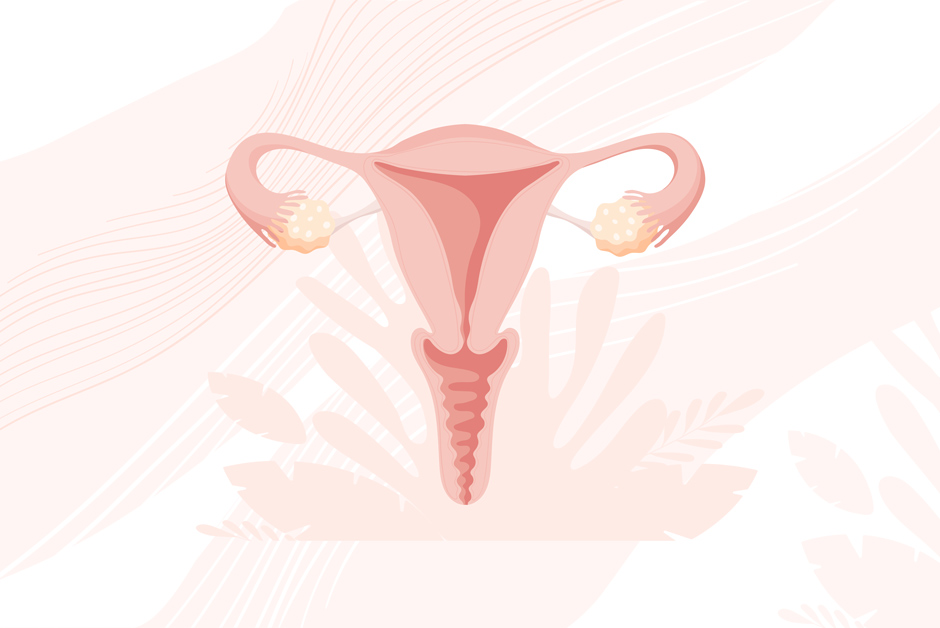In light of World Perimenopause Day (11th October), we look at the potential issues that someone with perimenopause may come across in relation to sex, and provide practical tips for achieving a healthier, more comfortable and fun sex life during this period and beyond.
Perimenopause is the time leading up to menopause where your body begins to go through a natural transition to the end of your reproductive years. This period can be anywhere from a few months to 10 years before menopause, and most commonly occurs in a woman’s forties.
The changes experienced during perimenopause are hormonal, and can include irregular periods, hot flushes, weight gain and, in some cases, certain physical and mental changes that impact sex life, such as vaginal dryness and low libido.
Sexual health issues caused by perimenopause
The decrease in oestrogen levels during perimenopause is at the root of many sexual health issues experienced by women during this time. This drop in oestrogen can cause:
- Vaginal dryness – this is a lack of naturally produced lubrication that can cause pain or discomfort during sex due to inflammation, as well as bleeding, itching and soreness.
- Urinary tract infections (UTIs) – perimenopausal and menopausal women are more at risk of UTIs including cystitis and urethritis.
- Low libido – a loss of interest in sex or difficulty maintaining arousal. This may affect relationships and can lead to low self-esteem and a negative connection to sex and intimacy.
Although these issues can be frustrating, it is important to remember that the perimenopause does not have to spell the end of your sex life. There are many perimenopausal and menopausal women who enjoy a healthy sex life throughout these periods and beyond. In addition, not all women will experience these symptoms in the severity described above, while others may not experience them at all.
If you are approaching perimenopause, or currently going through this life stage, here are some helpful tips that you can implement in order to help you feel more confident and comfortable during sex.
1. Use lubrication
If you are experiencing vaginal dryness, you are almost certainly going to feel less comfortable during sex than someone who is able to naturally lubricate. Remember that there is no shame in using other forms of lubrication in order to make penetration easier and the experience more enjoyable.
There are several types of lubricant to choose from:
- Water-based – Water-based lubricants are safe for many skin types, easy to wash out of bed sheets and clothing, and safe for use with latex and non-latex condoms.
- Silicone-based – This type of lubricant is ideal for sensitive skin, as silicone is hypoallergenic. It is safe for use with condoms, but do not use it with silicone-based sex toys as it can create abrasions on the surface of the toys where bacteria can collect and increase your risk of an infection.
- Oil-based – Long-lasting with each application, using an oil-based lubricant means less interruptions for reapplication during sex. However, this type of lubricant is difficult to clean up, and increases the risk of latex condom breakage.
- Natural – There are many lubricants on the market that have a very short ingredient list and are often marked as ‘natural’. These may be an option if you are concerned about using chemicals in your body that may cause irritation.
It is important to always read the label when purchasing lubricants for use during sex. Some lubricants may be flavoured, or deliberately cause a sensation such as tingling or warming; if you are concerned about whether these may cause irritation, avoid their use, and make sure to test any other lubricants on your skin before using them in action.
2. Step away from routine
When it comes to sex, routine may provide some people with comfort while others may find that they begin to lose interest. If you are suffering from low libido and find that your interest is waning when it comes to the thought of sex, try to change up your routine. This could be wearing some new clothes or underwear to make yourself feel more confident, using sex toys, or try new positions. Whatever you do, ensure that the bedroom (or wherever you prefer to have sex!) is a judgement-free zone where you can explore your sexuality with your partner, without having to feel at all embarrassed or ashamed.
3. Improve your physical fitness
As mentioned, low libido can lead to low self esteem, making it even more difficult for perimenopausal women to be confident while intimate. This, in addition to hormone-related weight gain, aches and pains that may arise as a result of low bone density, and hot flashes, may be enough to put you off of having sex altogether.
However, when it comes to building your confidence back up, one of the best ways to do so is to find an exercise routine that will improve your physical fitness and therefore your self esteem as you meet your goals. Not only this, but a good fitness routine can increase your stamina during sex, allowing you to enjoy the activity for longer.
4. Improve your mental wellbeing
While some people might view sex as a stress-relief, others may find that stress has a negative impact on libido. According to the Mental Health Foundation, 74% of people in the UK have felt overwhelmed or unable to cope at some point in the past year, and 81% of women said this compared to 67% of men. This indicates that women are more likely to experience worse stress than that of their male counterparts, which could be affecting their sex lives.
During the perimenopause, oestrogen drops, allowing cortisol to rise as the body tries to find a hormonal balance. As cortisol is the stress hormone, women may find that they are more stressed during this period than they were before, and this stress can affect what happens in the bedroom.
If stress is impacting your sex life during perimenopause, it is important to engage in stress-reducing behaviours to improve your mental wellbeing and feel like yourself again.
Tips for relieving stress include:
- Reducing your workload
- Engaging in self care activities
- Maintaining a good fitness routine
- Eating healthy wholefoods
- Attending regular appointments with a counsellor
- Meditation
5. Explore perimenopause treatment options
Dr Albert Aka, Consultant Gynaecologist at The Gynae Centre, explains: “With modern medicine, no woman should have to endure the unwanted symptoms of perimenopause, including giving up a healthy sex life. If you are looking to relieve these symptoms, you should become informed of the treatment options that may be available to you so that you can make the right decision about your perimenopausal health.”
At The Gynae Centre, our treatments include:
Hormone Replacement Therapy (HRT)
HRT is a therapy that utilises hormone replacement medication to rebalance hormone levels that have been impacted by perimenopause or menopause. HRT is available in a variety of applications, from tablets to patches, and treatment can begin as soon as you begin to experience symptoms.
Hormonal Implants
The Mirena coil is commonly used for symptom relief. It is an intrauterine device (IUD) known as the recognised approach for avoiding exposure to systemic progesterone and its alleged connection with breast cancer.
Learn more about what happens to your vagina during menopause.
Treatment for perimenopause
To find out more about treatment options for perimenopause, click here, or use our online booking service to book a consultation with a friendly, experienced gynaecologist at The Gynae Centre. Alternatively, call our clinic on 020 7580 8090.






